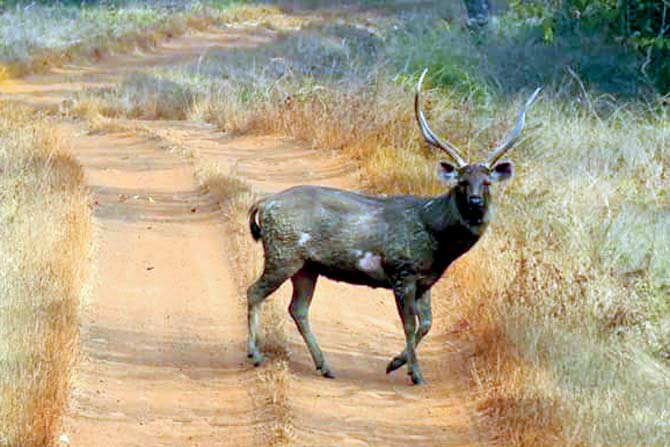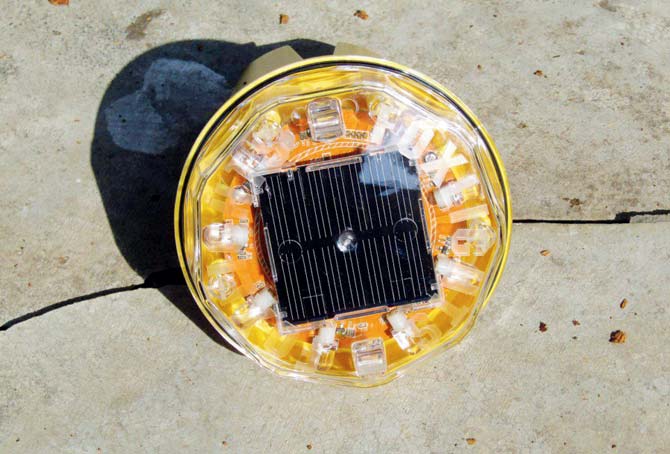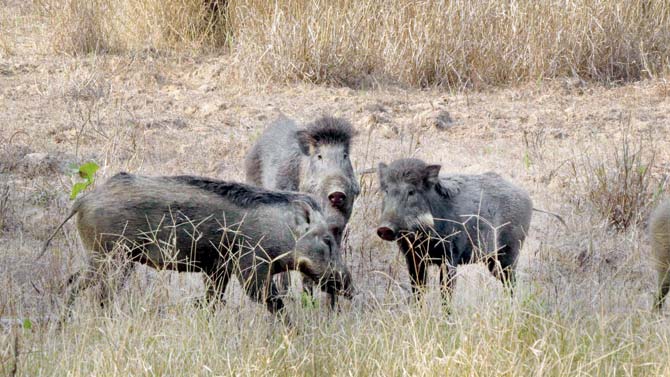Cluster of flashing lights keeps wild animals off farmland along boundary of the tiger reserve; model holds the promise of reducing man-animal conflicts in Maharashtra, too

 Tiger at Pench reserve
Tiger at Pench reserve
Six years after young Richard Turere floored the world with his 'lion lights' -- an ingenious, low-cost invention to scare away animals from his farm in Kitengala on the edge of Kenya's Nairobi National Park -- the Pench Tiger Reserve in Madhya Pradesh has replicated a similar model to minimise man-animal conflict.
 A sambar
A sambar
Turere has spoken at two TED conferences on how he outfoxed lions attacking the cattle on his family farm, armed with just sequence LED lights, a box with switches and an old car battery powered by a solar panel (see box: The boy who cried lion) in 2011. He programmed the lights to flicker intermittently, resembling a human with a flashlight. The trick did wonders: not only did the lions stay off his farm but also hyenas and leopards off other villagers'.

LED lights scare away sambar; even tigers are keeping away, mitigating man-animal conflict
Prompted by crop damage
Halfway across the globe, the success story inspired Pench Tiger Reserve authorities. Together with a Kolkata-based NGO, Saving Tigers Society, they installed solar-powered flash fox (sequence) lights three months ago around the reserve to keep spotted deer and wild boars away from villagers' crops.

Richard Turere. Pic/ Youtube/ TED talks
Subharanjan Sen, chief conservator of forests and field director of the reserve, says repeated depredations of crops by animals pushed the authorities into coming up with a solution. The premise of this pilot project is the same as Turere's. Multi-coloured LED sequence lights have been erected at 10 locations, each site with seven bulbs, in Karmajhiri and Vijaypani on the boundary of Pench. These, too, imitate a flashlight flickering in a random order. The lights, placed at eyesight level of wild animals, give the impression of human presence, thereby keeping wild animals away. Sources say 100 other locations near Pench will get these lights soon.

The LED lights have been successful in scaring away spotted deer, sambar and wild boar from farmland near Pench tiger reserve
Plan a hit
Indrajit Sengupta, member of Saving Tigers Society, which also works with Kanha Tiger Reserve in Madhya Pradesh, says the plan is already a success. "The lights are scaring away wild boars, spotted deer and sambars from agricultural fields on the boundary of the tiger reserve. Even tigers and leopards are keeping away." Other members confirm this. Although each light costs R5,400 -- the whole set-up, thereby, costing R3.78 lakh -- neither the forest department nor the NGO is charging the farmers and villagers any money for the devices.
 Wild boars
Wild boars
Maharashtra dabbles with model
Closer home, solar-powered blinker lights have been installed at Thidbi village near a thicket abutting the forest department's property in Murbad taluk, Thane. A senior Maharashtra forest department official says the Pench's project holds promise. "Before implementing it in other national parks where man-animal conflicts are reported, we have to get results over a period of time from Pench. If the model is a success there, it can be replicated here."
 Subscribe today by clicking the link and stay updated with the latest news!" Click here!
Subscribe today by clicking the link and stay updated with the latest news!" Click here!







